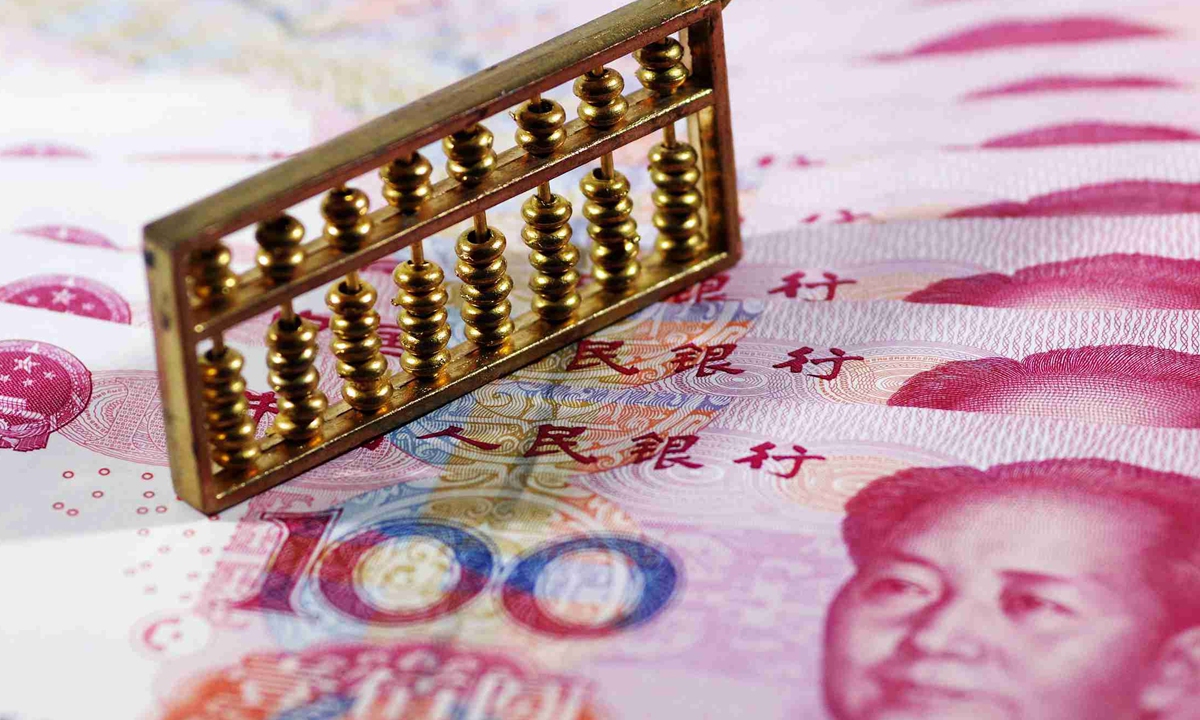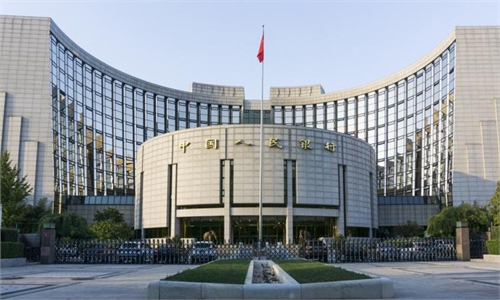
Chinese yuan Photo:VCG
The People's Bank of China (PBC), the country's central bank, on Monday continued to inject new liquidity into the financial system through open market operations, as the authorities step up policy support for economic recovery and create a stable financial environment for the high-quality development of the world's second-largest economy.
The PBC has conducted 382 billion yuan ($53.28 billion) of seven-day reverse repos at an interest rate of 1.40 percent, according to a statement seen on its website.
With 135 billion yuan worth of seven-day reverse repos maturing on Monday, the move resulted in a net liquidity injection of 247 billion yuan, according to a China Fund News report.
A reverse repo is a process in which the central bank purchases securities from commercial banks through bidding, with an agreement to sell them back in the future.
The central bank's reverse repo operations will help maintain liquidity "ample and reasonable" in the banking system, Zhao Xijun, co-president of the China Capital Market Research Institute at Renmin University of China, told the Global Times on Monday.
The move came after the PBC on Friday conducted a 500-billion-yuan, one-year medium-term lending facility (MLF) operation to add new liquidity to the country's banking system. Moreover, a 0.5-percentage-points reduction in the reserve requirement ratio (RRR) for eligible financial institutions takes effect on May 15, with the move expected to inject roughly 1 trillion yuan of long-term liquidity into the financial market.
"A series of the central bank moves not only bolster the real economy but also demonstrates the flexibility and precision of the monetary policy management," Zhao said.
With a largely accommodative monetary policy, the coordinated uses of structural tools and aggregate policy measures are expected to further accelerate the country's economic growth, by providing a stable financial environment for high-quality development, he said.
Currently, the central bank's liquidity toolkit features a rich array of instruments with a more balanced maturity distribution. The RRR reduction releases long-term funds that lower commercial banks' funding costs, while the MLF rollovers help address medium-term liquidity gaps. Unlike the past reliance on aggregate tools alone, current policies emphasize synergy among different instruments, Zhao said.
Amid external market volatility since April, China stepped up counter-cyclical adjustments to stabilize the market and sustain economic recovery. On May 7, the financial authorities unveiled a raft of supportive measures to reinforce economic growth.
A meeting on providing financial support for the real economy, presided over by PBC Governor Pan Gongsheng, stressed efforts to step up support for key areas such as sci-tech innovation, consumption recovery, private micro-sized and small businesses, and the stabilization of foreign trade. The central bank will make good and full use of both existing and new policies to improve the quality and efficiency of financial services for the real economy, and support economic restructuring, industrial transformation and upgrading, as well as the replacement of old growth drivers by new ones, according to the meeting.
Overall, the authorities are boosting the implementation of a package of incremental policies while strengthening financial support for tech innovation, which will consolidate the nation's long-term economic development fundamentals and help improve expectations and elevate confidence, Wen Bin, chief economist at China Minsheng Bank, told the Global Times on Monday.Thus, commercial banks are expected to step up lending and maintain reasonable growth in overall credit volume, Wen said.
China's policy mix this year has demonstrated sufficient intensity and consistency. With the implementation of various monetary policies, fiscal policies are expected to follow to shore up domestic investment and consumption, Zhao said.



